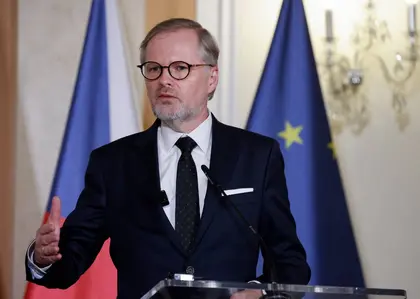According to an August 5 report in Politico Hungary, which currently holds the Presidency of the Council of the European Union (EU), announced in early July that it was modifying its visa regime to allow Russians and Belarusians to obtain two-year work visas. This would allow them to also settle with their families and which could eventually be converted to permanent residency. The move followed the July 5 meeting in Moscow between Hungary’s Prime Minister Viktor Orbán and Russian President Vladimir Putin.
The move has not gone down well with other EU member nations who believe that Budapest’s visa scheme would present an unacceptable risk to European security. Following calls last week by Tytti Tuppurainen leader of Finland’s Social Democratic Parliamentary Group to exclude Hungary from the continent-wide free movement allowed by the Schengen Zone, the EU’s Home Affairs Commissioner Ylva Johansson warned the bloc could take action.
JOIN US ON TELEGRAM
Follow our coverage of the war on the @Kyivpost_official.
70 members of the European Parliament (MEP) signed a letter over the weekend that called on the wrote to EU's executive branch to take action to suspend Hungary from the free-travel scheme.
The letter said, “We call on the European Commission to take urgent action to investigate the Hungarian decision, as it may constitute a loophole and potentially jeopardize the overall functioning of the Schengen area and its role as a safe space for citizens.”

FSB Officer Shot Dead in Moscow Ministry of Defense Building
It continued, “If the Hungarian government refuses to change its visa policy, the European Commission and all EU countries ‘should question the Hungarian presence in the Schengen area by introducing new measures to protect European citizens, including new controls at Hungarian borders’.”
The Hungarian government has proposed to extend its revised visa scheme, which was previously made available to citizens of Ukraine and Serbia, to six non-EU countries in addition to Russia and Belarus: Bosnia and Herzegovina, Moldova, Montenegro, and North Macedonia. Budapest said in early 2024 that it was hoping to attract up to 65,000 guest workers and their families.
Hungary would issue such immigrants with a “national card” which could theoretically, be extended indefinitely, and does not require the holder to pass tests in Hungary’s language, history or culture. Once an individual receives the document they can enter and move freely within the country without further security checks.
This has led Hungary’s neighbors to fear that Russian spies and saboteurs could take advantage of the Schengen scheme so that once in the country they could move freely anywhere within Europe.
Following Russia’s 2022 full-scale invasion of Ukraine and continuation of the war a number of European countries first introduced more stringent visa regimes aimed at Russian and Belarus. In particular, those countries that border the Russian Federation: Latvia, Lithuania, Estonia, Poland, Finland, and Czechia have now actually closed entry by Russians. Some have stopped issuing short-term tourist visas, while others have stopped allowing Russians into their territory even with already issued Schengen visas.
Hungary’s Foreign Minister, Péter Szijjártó, previously said that he considered claims his country’s scheme would endanger European security was an overreaction based on the “childish lies” of the Baltic States. He said that Russians and Belarussians could only enter Hungary and thus Schengen Zone once they received a visa and could only obtain a residence permit in line with the procedure laid the procedures laid down in law conducted by Hungary’s National Directorate-General for Alien Policing.
In July, Orbán embarked on a “peace tour” which he said was intended to persuade Ukraine and Russia to enter into negotiations to end the war. This included visits to Kyiv, Moscow, Beijing and Washington. The “initiative” was done without the approval and support from Budapest’s EU partners with suggestions growing that Hungary should consider leaving the bloc if it wished to increase its political and even military relationship with Moscow.
You can also highlight the text and press Ctrl + Enter






